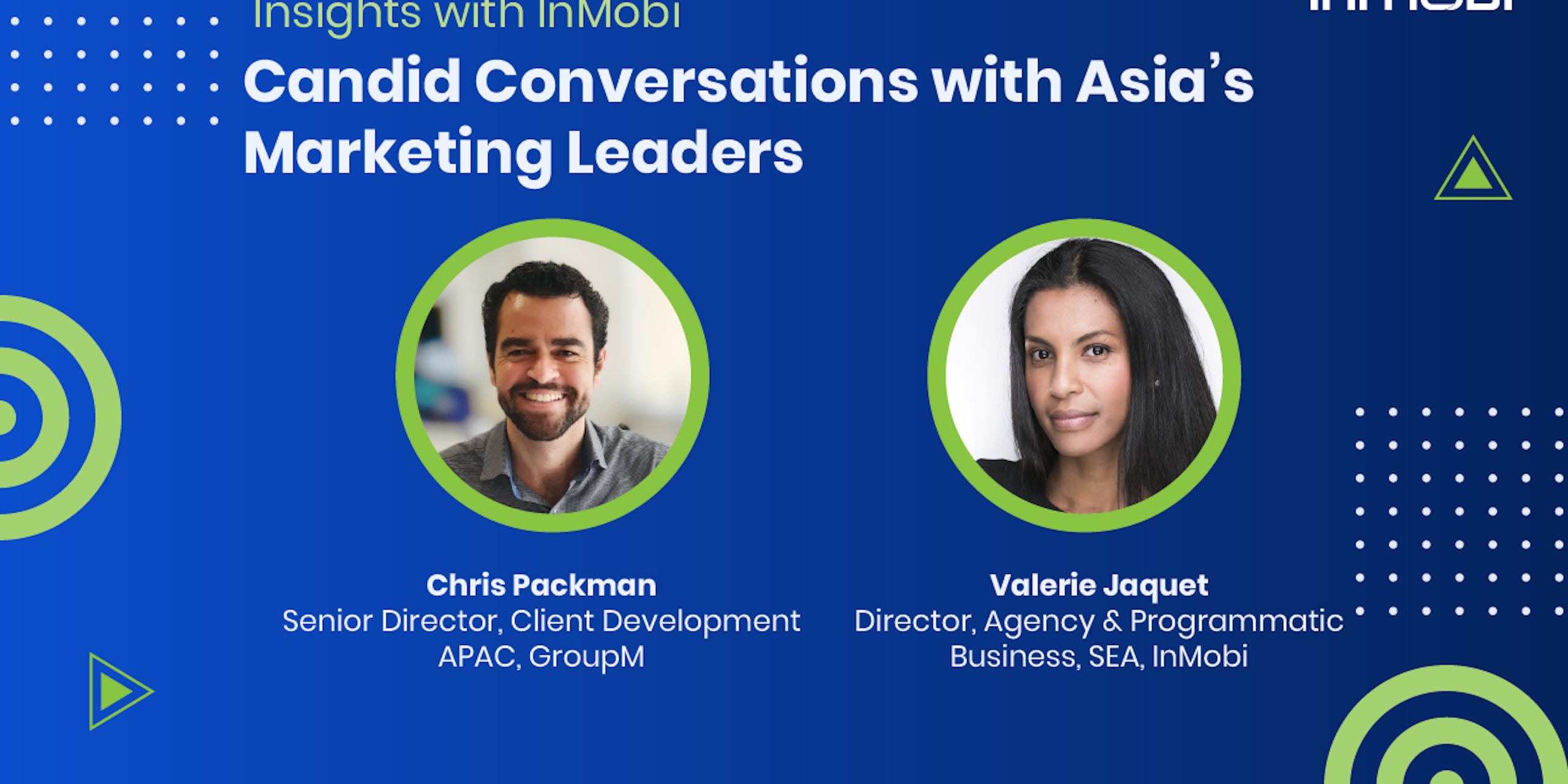Fuel campaign performance with laser-focused targeting

This article first appeared on The Drum
The last two years have brought about many changes in the programmatic advertising landscape. With the phase-out of third-party cookies and the emergence of ATT (app tracking transparency), there are innovative solutions springing up within the ecosystem. It is now imperative for brands to not only embrace digital transformation but also build their own data and technological capabilities to stay ahead of the competition and reach consumers in a meaningful yet privacy-compliant way. To help brands navigate through this sea of changes, agencies have a crucial role to play in bridging these gaps and helping brands seamlessly adapt and thrive in this unique environment.
InMobi’s Valerie Jaquet (director of agency & programmatic business in Southeast Asia) caught up with Group M’s Chris Packman (senior director, client development, APAC) to understand the changing tides and trends in the programmatic advertising space, the future of identity solutions and what it means for brands and the role of agencies in helping brands to navigate and achieve digital transformation successfully in this ecosystem.
See below for the full conversation. You can find an excerpt of the conversation below.
The pandemic was an unprecedented and challenging time that nobody saw coming. However, we learned to quickly adapt to the new normal. Many advertisers were forced to accelerate their digital capabilities to meet their consumers at the touchpoint they were most present on. Having said that, we also know that digital transformation was already underway for many brands, and this situation just fuelled that growth to occur faster.
When we talk about the role of agencies, navigating the risks and opportunities is the real challenge. There is a lot of competition in the marketplace and brands need to look at their creative and audience strategy, their messaging, and overall marketing goals. From an agency and media perspective, the industry has had to work a lot harder to drive relevant partnerships and build trust among stakeholders. Since this whole change is quite complex to navigate for most brands, our job is to simplify this for them as much as possible. With our expertise and knowledge, we strive to make this a seamless shift by equipping them with the best practices, enabling the right channels of communication, and so on, to ultimately ensure they meet all the business and marketing KPIs across the funnel.
When choosing a platform, one might have several parameters in mind. However, the end goal is always about reaching a consumer and that should never be forgotten. The entire marketing mix should be kept in mind before choosing a platform.
We have always seen new platforms coming every now and then. The role of an agency is to find the best platforms that are most suitable for our clients and their goals.
Test and learn is the way to go. There is a lot of uncertainty when it comes to how to target and measure and the only way to solve it is to test new platforms and measure the results to understand which platforms are best suited for your brand and objectives. While we have been testing capabilities across markets, we noticed that APAC as a region has always been particularly good at adapting to these changes swiftly.
All brands we work with care about privacy changes. Our job is to help them navigate to use data in a privacy-compliant, ethical and effective way. With so many voices in this space, it is important to cut through the clutter and this is where data comes into play.
We make sure we advise our clients according to different regions and their guiding laws. Just because you can use certain data does not mean you should use that data. There are a lot of ethical dilemmas that we deal with, but we keep ethics as a priority and ensure that data is used within the guidelines stated by the law of the land, is cost-effective, and also helps brands achieve their campaign goals.
We place a lot of emphasis on value exchange when it comes to data. Then data can be valuable if used in the right manner and also help deliver meaningful conversations and build a relevant experience for your consumers. Our conversations with clients are on how data can be used in a privacy-compliant, non-intrusive way and at the same time reach consumers meaningfully and achieve a mutually beneficial value exchange.
Interconnectivity is one of the most essential elements here. While brands sit on a load of data, it is important to measure filter out, and measure the effectiveness of the data in the backend, there is no point having it in the first place. We help brands build a strategy to collect first-party data in a privacy-compliant manner, store that data and use it effectively to make the campaigns more successful.
Though it highly depends on the brand we are talking about, there are three main elements we should focus on.


Register to our blog updates newsletter to receive the latest content in your inbox.